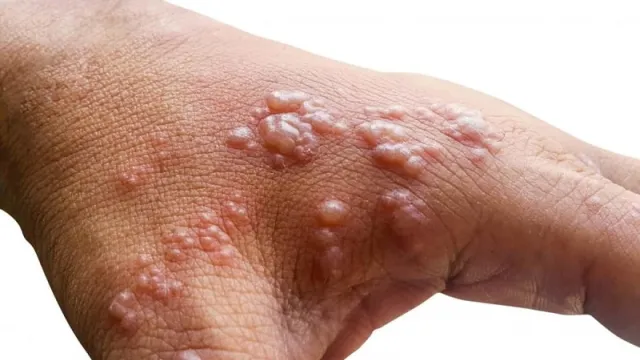Kenya to join monkeypox vaccine trials next year

Kenya to join monkeypox vaccine trials next year
There is a ray of hope for Africa, where monkeypox is endemic, but is yet to receive vaccines to prevent the highly contagious virus.
This is after Kenya was selected to participate in the race towards the development of immunization for monkeypox, which is feared could raze the world one more time.
Tonix Pharmaceuticals Holding Corp, a US-based pharmaceutical firm has picked Kenya for phase one clinical vaccine trial to develop TNX-8011 as a vaccine against monkeypox and smallpox.
The study for local development of the vaccine is expected to start in the first half of 2023, and it will be conducted in collaboration with researchers from the Kenya Medical Research Institute (KEMRI).
Kemri director-general Prof Samuel Kariuki said the State corporation is glad to plan the clinical trials with Tonix, and ultimately to lead the trials.
“We are grateful that Tonix is committed to sponsoring clinical studies and making TNX-801 available for this important study,” he said.
According to Tonix Pharmaceuticals CEO Dr Seth Lederman, TNX801 is a live virus vaccine believed to be closer to the smallpox vaccines used in the US and Europe before 1900.
Read also: Kenya to benefit from WHO, Gavi Sh18.5 billion malaria vaccine funding
“People who received the live virus vaccine for smallpox before eradication appear to maintain durable protective immunity against monkeypox,” Dr Lederman said, adding that TNX-801 has reduced virulence in animals and we believe it has the potential for widespread use to protect against monkeypox.
According to the World Health Organization’s latest data, over 35,000 cases of monkeypox virus have been reported globally, with just a few cases reported in Africa. Kenya has not reported any case.
Last month, the WHO declared monkeypox a global public health emergency of concern.
This means the situation has not necessarily grown out of control but has the potential to do so, hence the need for an immediate international response.
The disease is caused by a virus that is closely related to the variola virus which causes smallpox.
It is transmitted from animals to humans and has symptoms similar to those seen in smallpox patients but is clinically less severe.
The WHO says the virus can be transmitted from one person to another by close contact with lesions, body fluids, respiratory droplets, and contaminated bedding.
The incubation period for the disease is between six and 13 days.
According to the Centre for Disease Control (CDC), the disease begins with a fever, headache, chills, muscle aches, and exhaustion but unlike smallpox, monkeypox causes lymph nodes to swell.
Within three days, the patient develops rashes often beginning on the face and then spreads to the other parts of the body.



